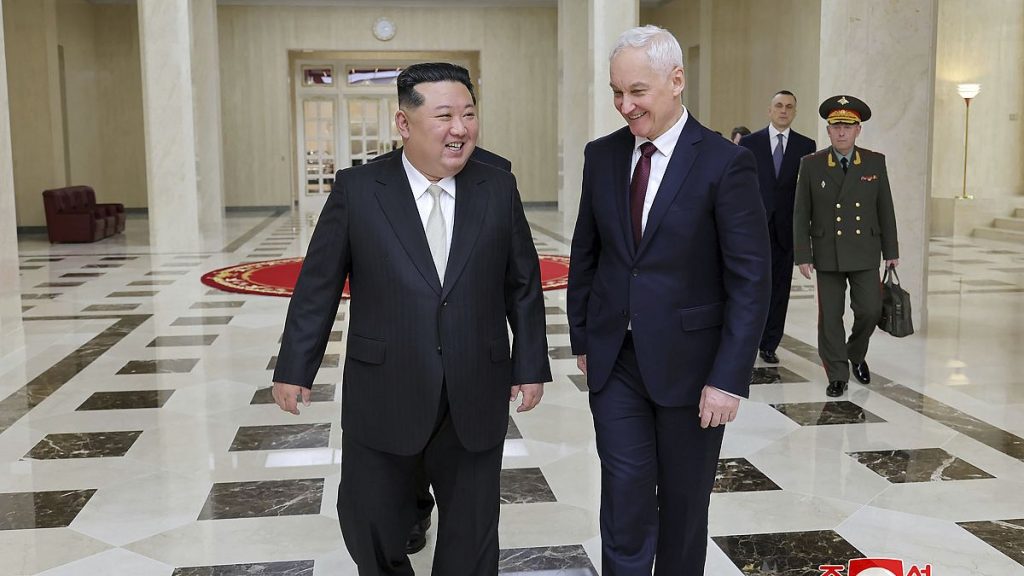In a recent meeting between North Korean leader Kim Jong-un and Russian Defense Minister Andrei Belousov, Kim reaffirmed North Korea’s unwavering support for Russia in its ongoing conflict in Ukraine. This meeting, reported by the Korean Central News Agency (KCNA), comes amid increasing global scrutiny regarding the deepening ties between North Korea and Russia, especially following North Korea’s dispatch of a significant number of troops to aid Russia’s military efforts last month. Both parties discussed strategies to strengthen their strategic partnership, emphasizing the importance of defending their respective sovereignty, security interests, and notions of international justice against perceived Western aggression. Kim framed North Korea’s support as a response to what he described as imperialist maneuvers seeking to undermine both nations.
Kim’s statements reflect North Korea’s broader narrative surrounding the Ukraine conflict. Official propaganda positions Russia’s actions as a necessary defensive stance against NATO’s expansion and the U.S.-led geopolitical landscape. In the wake of a U.S. decision to allow Ukraine to strike deep within Russian territory using American-supplied long-range missiles, Kim condemned this as a direct intervention that exacerbates the conflict. He characterized recent Russian military operations in Ukraine as “timely and effective measures” that showcase Russia’s determination and resilience amid increasing external pressures.
The extent of military cooperation between the two countries raises alarm among various governments, particularly the U.S., South Korea, and their allies. According to assessments from U.S. and South Korean intelligence, North Korea has allegedly dispatched over 10,000 troops to assist Russian forces, with some reports indicating that these troops have already engaged in combat operations. Despite the absence of formal confirmations from either North Korean or Russian officials regarding troop deployments, concerns persist that North Korea may supply Russia with critical military hardware, including artillery and missiles, to replenish its depleted stockpiles.
In tandem with military support, there are apprehensions that Russia may reciprocate by providing North Korea with advanced military technologies, potentially enhancing its missile programs and nuclear capabilities. Recent comments from South Korean national security adviser Shin Wonsik highlighted suspicions that Russia has already supplied North Korea with air defense systems and other military technologies, potentially empowering Pyongyang’s ambitions, including its aspirations for a sophisticated space-based surveillance capability. This evolving dynamic suggests a quid pro quo relationship wherein both nations benefit strategically from one another amidst international isolation.
At the recent meeting, Belousov also held discussions with North Korean Defense Minister No Kwang Chol, asserting the crucial importance of their strategic alliance in resisting imperialist aggression. This comes in the context of a defense treaty signed by Kim and Russian President Vladimir Putin in June, which obligates both nations to provide immediate military assistance in the event of an attack on either country. This agreement is viewed as the most significant military pact between North Korea and Russia since the Cold War, indicating a renewed military alignment that could have far-reaching implications for regional security dynamics.
The ongoing collaboration between North Korea and Russia not only signals a shift in military alliances but also highlights the deteriorating international security environment. With North Korea firmly on Russia’s side amid the Ukraine conflict, both countries may further isolate themselves from Western influences and increase their military capabilities, potentially leading to a more divided and volatile international landscape. As both nations navigate these complex geopolitical relationships, their actions will undoubtedly shape future dynamics in regional and global security frameworks.














